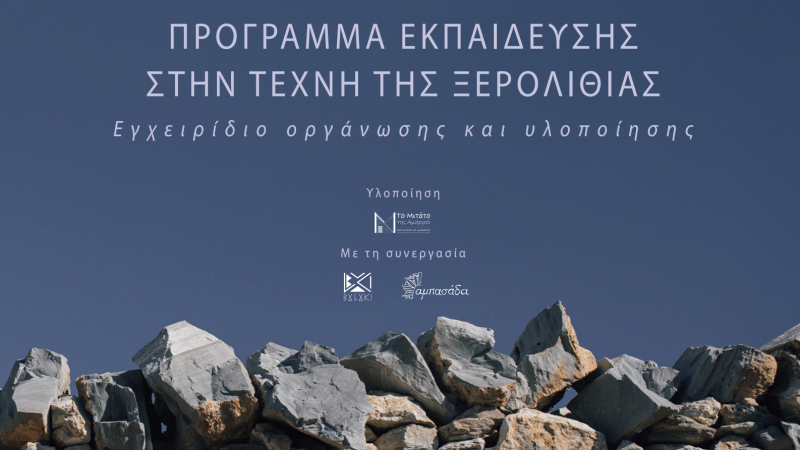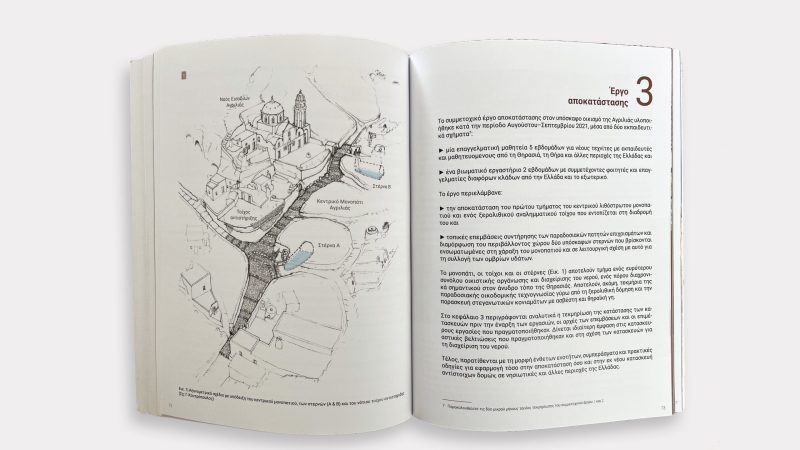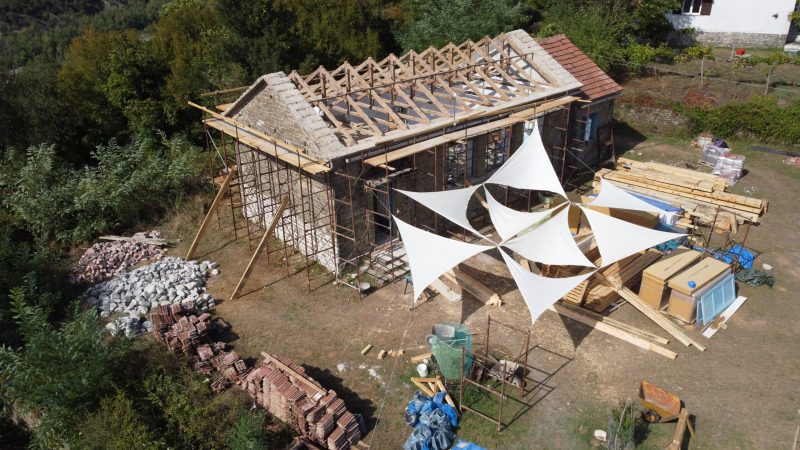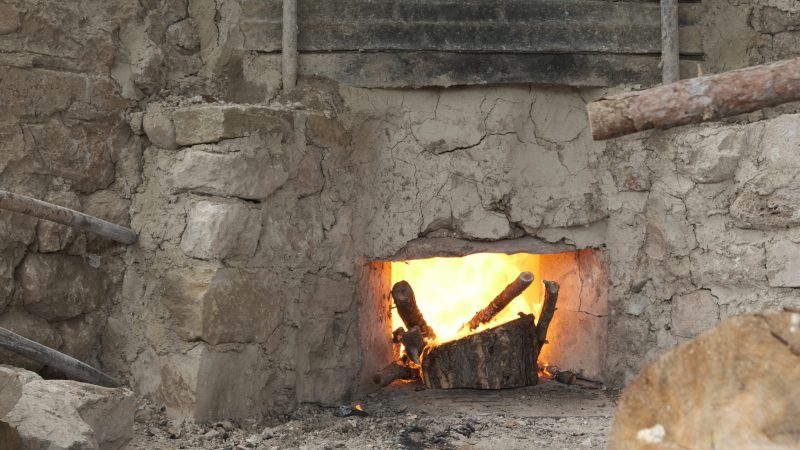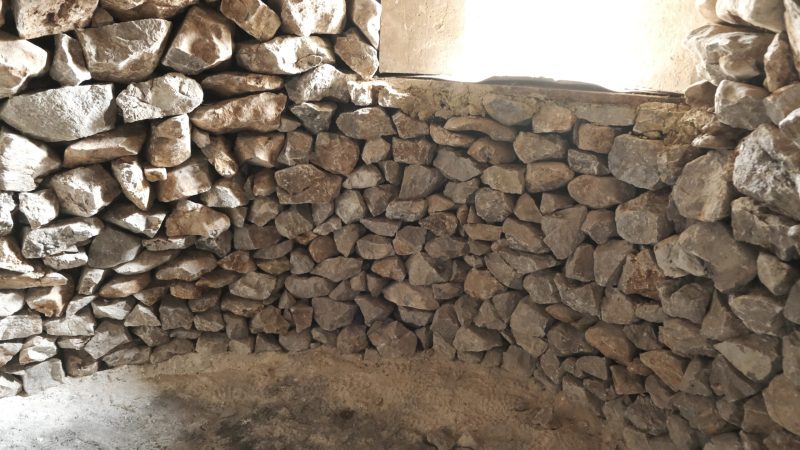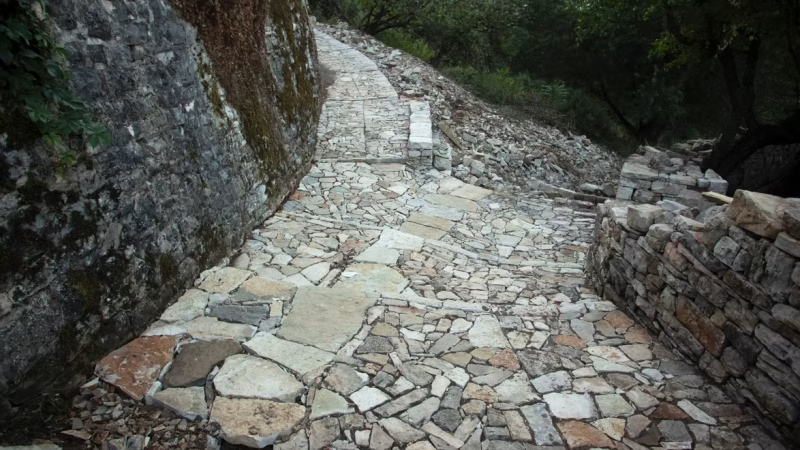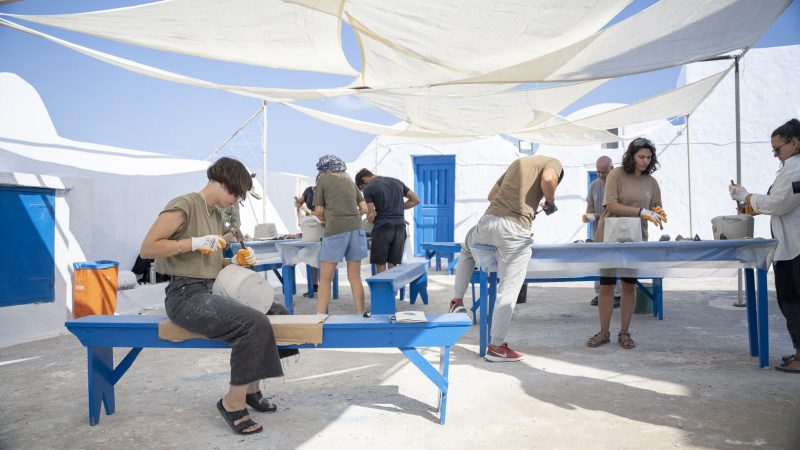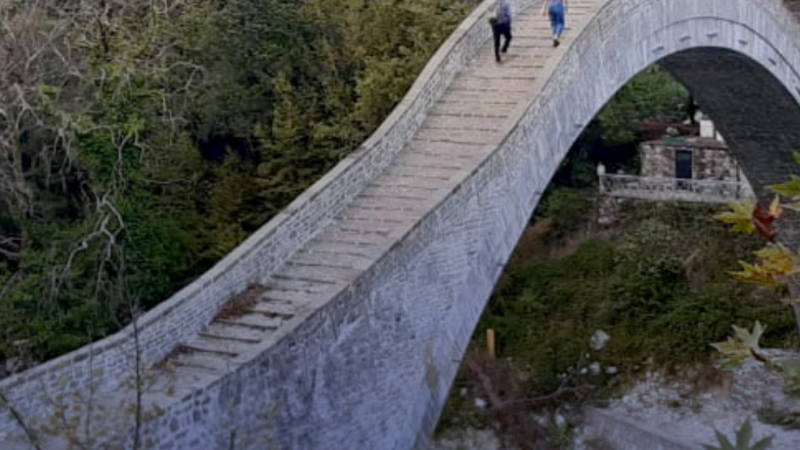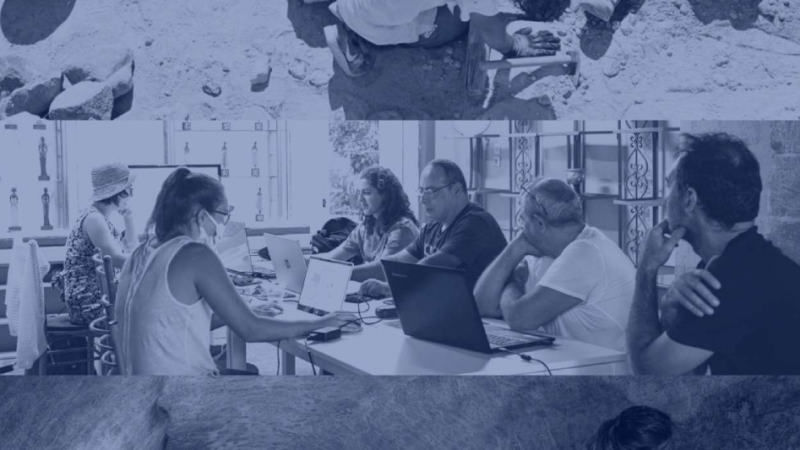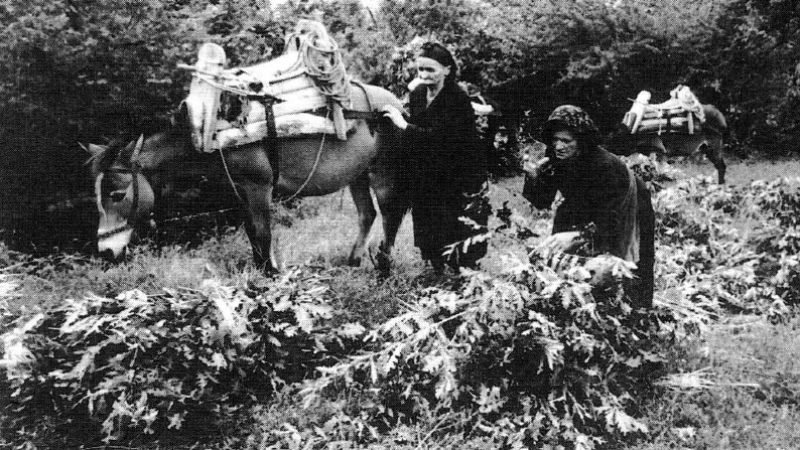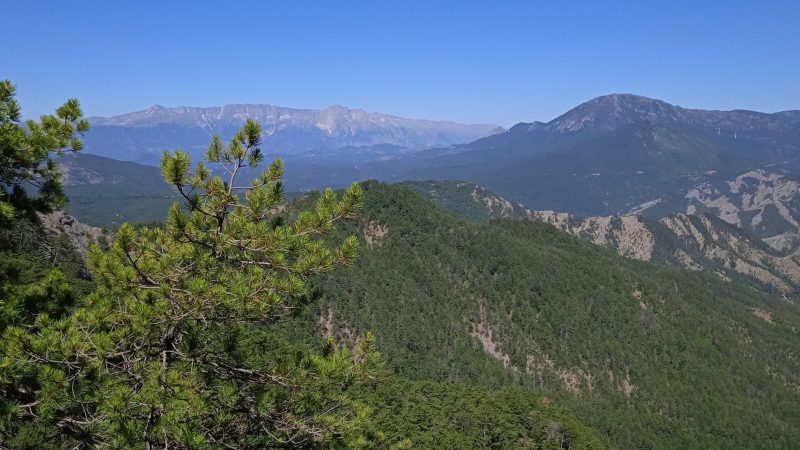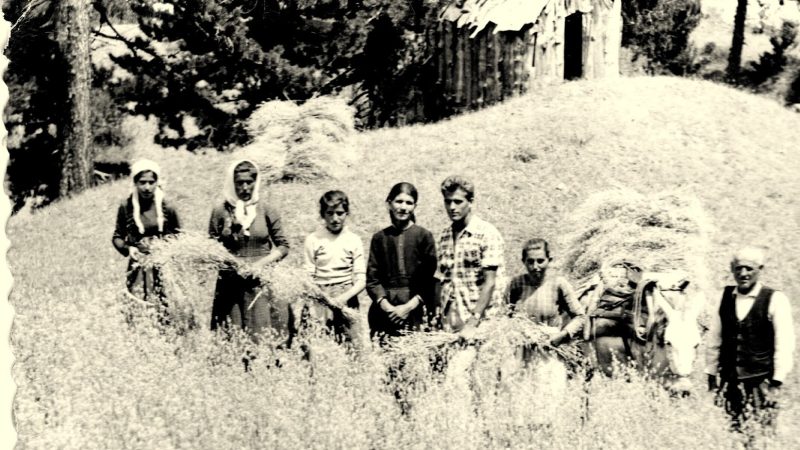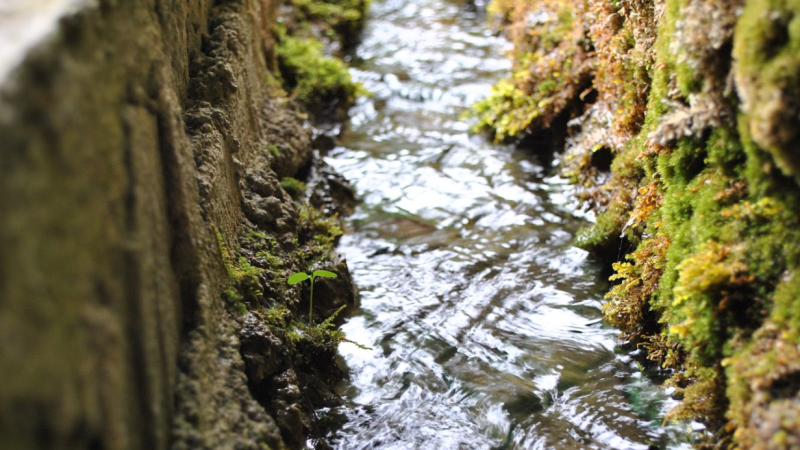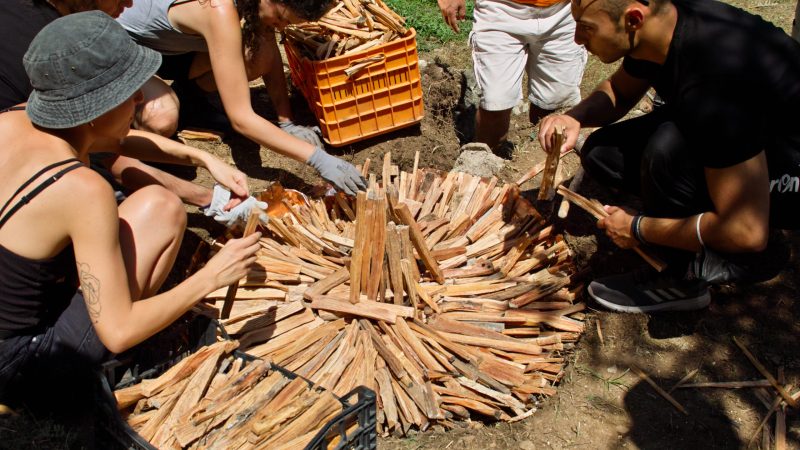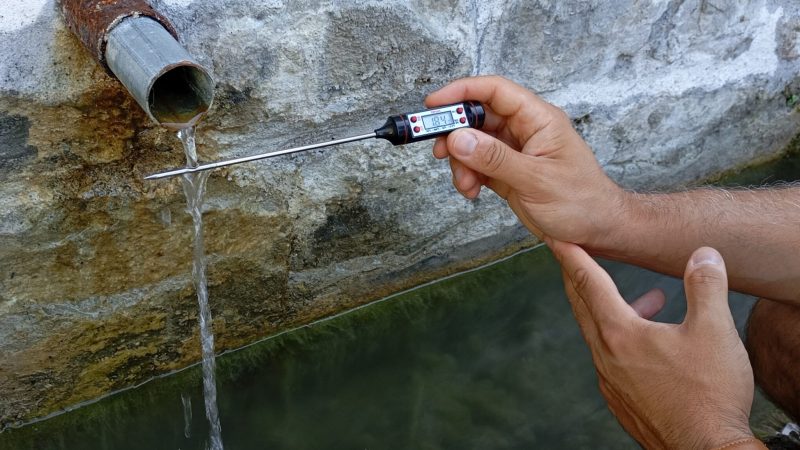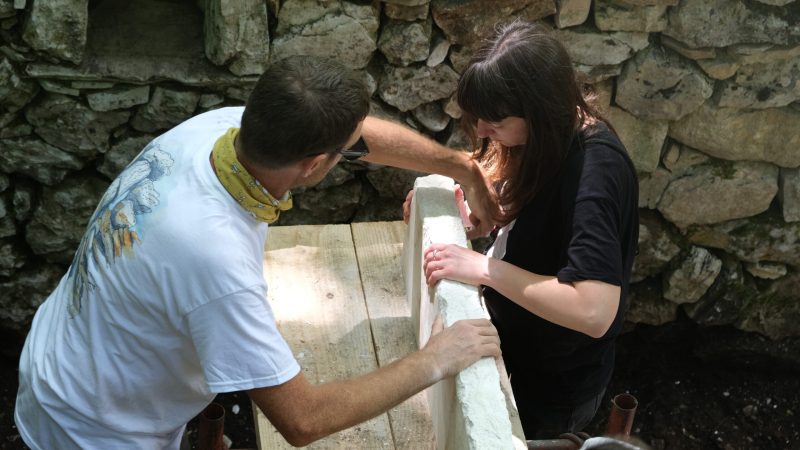Resources
Discover a wealth of unique resources from our team, encompassing detailed documentation on the use of traditional raw materials in construction, findings from specific projects and field research, and comprehensive educational materials, including rich audiovisual content and handbooks on traditional building techniques. Additionally, explore our diverse publications, featuring extensive audiovisual materials, activity leaflets, and artistic reviews that highlight Boulouki’s multifaceted projects.
- Educational material
The manual aims to guide organisations and civil society groups who wish to actively engage in the efforts towards the conservation and transition of knowledge of the dry stone craft, assisting them with the planning and realisation of educational programmes in order to secure minimum educational and quality standards. The suggested methodology and structure take into account the particularities of the Greek territory and the conditions of isolation that are often in place, either due to insularity or mountainous terrain. It is therefore a programme that can be adjusted and realised anywhere, tapping into local techniques, knowledge, and craftsmanship.
The manual is the result of the research and practical implementation realised in 2025 by the Mitato of Amorgos, in collaboration with the Itinerant Workshop on the Traditional Building Crafts Boulouki and the Cultural and Environmental Association of Tinos “Ambassada”, in the context of the project “Allaximaria: Design and implementation of a standardised dry stone workshop”.
The file is available in Greek.
- Educational material
Based on the experience and knowledge gained from the research and the participatory restoration project in the underground settlement of Agrilia, an openly available handbook was created, for the dry stone structures of Therasia and Santorini and the use of building materials made of lime and the local volcanic tephral, theran earth.
The handbook was developed in the framework of the project “Under the Landscape: Participatory interventions for the protection and promotion of the man-made and natural environment of Therasma”, as part of the programme “Innovative actions with citizens”, founded by the Green Fund.
The file is available in Greek.
- Educational material
This handbook summarizes the process of repurposing the School’s roof through a double training program for young professionals, focusing on the traditional and sustainable practices that can be replicated in similar projects elsewhere. The creation of the handbook was supported by INTBAU Grassroots Grants Programme.
The file is available in English.
‘Burning the Bones of the Earth’ was initiated in November 2021 and concluded two years later, following extensive field research in several locations of Epirus in NW Greece and in regions of S. Albania. Its objective was to trace and document the traditional craftsmanship of wood-fired, flare-type lime kilns on both sides of the border; to explore the knowledge, practice, and social dimensions regarding the lime kiln technology and the ways it evolved in the two neighbouring countries. Full documentation of the project was uploaded at the British Museum’s Digital Resources Website on November 2025 and is now fully accessible to the community. In this resource you can find the documentation guide (downloadable file) and the full programmes website:
The file is available in English.
This article presents preliminary findings from an extensive research project titled ‘Burning the Bones of the Earth’, which began in 2021. It documents the technology of traditional lime kilns in the trans-border region between Albania and Greece.
Authors: Ioanna Ntoutsi, Faidon Moudopoulos-Athanasiou.
The file is available in English.
The following decrees were issued as a result of open dialogue, scientific exchange, and collective processing, as part of actions carried out by the Itinerant Workshop on Traditional Building Techniques “Boulouki” in collaboration with local authorities, scientific organizations, and collectives in the context of the Reappearances Project.
They address the protection, conservation, and sustainable management of cultural landscapes, with an emphasis on the use of local materials, dry stone construction, and the connection of material heritage with the contemporary needs of local communities. The texts reflect commonly accepted positions, proposals, and policy guidelines, highlighting the importance of traditional knowledge, participatory restoration, and the judicious use of natural resources.
The file is available in Greek.
- Educational material
“HERO – Heritage Ecological Renovation for Inclusion Opportunities – is an Erasmus+ cooperation project associating 5 partners organization involved in the field of heritage restoration, eco-construction, training, and social inclusion. Between 2021 and 2024, partners have gathered their expertise to develop, test, and improve new approaches to heritage restoration :
- Inclusive and adapted to people far from training and employment
- Eco-friendly and respectful of the environment
The H.E.R.O project was implemented under the Erasmus+ programme and was completed after 3 years (2021-2024) of transnational cooperation between 4 actors Acta Vista (France) leading partner, Bao Formation (France), Pour la Solidarite (Belgium), 4Grada Dragodid (Croatia), Boulouki (Greece).
- Educational material
HERO – Heritage Ecological Renovation for Inclusion Opportunities – is an Erasmus+ cooperation project associating 5 partners organization involved in the field of heritage restoration, eco-construction, training and social inclusion. Between 2021 and 2024, partners have gathered their expertise to develop, test and improve new approaches to heritage restoration: Inclusive and adapted to people far from training and employment eco-friendly and respectful of the environment.
The H.E.R.O project was implemented under the Erasmus+ programme and was completed after 3 years (2021-2024) of transnational cooperation between 4 actors Acta Vista (France) leading partner, Bao Formation (France), Pour la Solidarite (Belgium), 4Grada Dragodid (Croatia), Boulouki (Greece).
- Educational material
“HERO – Heritage Ecological Renovation for Inclusion Opportunities – is an Erasmus+ cooperation project associating 5 partners organization involved in the field of heritage restoration, eco-construction, training and social inclusion. Between 2021 and 2024, partners have gathered their expertise to develop, test and improve new approaches to heritage restoration :
- Inclusive and adapted to people far from training and employment
- Eco-friendly and respectful of the environment
The H.E.R.O project was implemented under the Erasmus+ programme and was completed after 3 years (2021-2024) of transnational cooperation between 4 actors Acta Vista (France) leading partner, Bao Formation (France), Pour la Solidarite (Belgium), 4Grada Dragodid (Croatia), Boulouki (Greece).
- Educational material
As part of the project, we developed a technical handbook on how to design and implement inclusive and environmentally sustainable restoration and new construction projects by training young craftspeople and incorporating historic building techniques. The handbook is aimed at heritage institutions and architectural heritage practitioners, and educators. It focuses on issues of pedagogical approach, drawing on contemporary approaches to adult education, presenting theoretical and practical tools for the design of educational processes and the inclusion of vulnerable social groups.
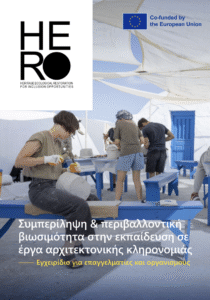
The H.E.R.O project was implemented under the Erasmus+ programme and was completed after 3 years (2021-2024) of transnational cooperation between 4 actors Acta Vista (France) leading partner, Bao Formation (France), Pour la Solidarite (Belgium), 4Grada Dragodid (Croatia), Boulouki (Greece).
The file is available in Greek, English, Croatian and French.
- Educational material
The publication aims to shed light on current challenges but also good practices encountered on restoration sites in Europe and proposes recommendations towards European stakeholders directly involved with the heritage restoration activities from a policy and strategic aspect, a technical and ecological aspects and also from a socio-economic point of view, as it has been clearly demonstrated, that heritage restoration stands at the crossroads of different policies, strategies but also solutions.
The H.E.R.O project was implemented under the Erasmus+ programme and was completed after 3 years (2021-2024) of transnational cooperation between 4 actors Acta Vista (France) leading partner, Bao Formation (France), Pour la Solidarite (Belgium), 4Grada Dragodid (Croatia), Boulouki (Greece).
The file is available in English.
- Educational material
This gallery of models reveals the potential contained in the alliance between heritage preservation and social inclusion. Hopefully it may inspire any organisation or public authority wishing to engage with this kind of initiative and contribute to the development of a sustainable and inclusive heritage restoration.
The H.E.R.O project was implemented under the Erasmus+ programme and was completed after 3 years (2021-2024) of transnational cooperation between 4 actors Acta Vista (France) leading partner, Bao Formation (France), Pour la Solidarite (Belgium), 4Grada Dragodid (Croatia), Boulouki (Greece).
The file is available in English and French.
- Documentation
Since Boulouki has been working for years in Epirus, it has come close to the needs of local communities. In the framework of this project it aims at enhancing their livelihood and well-being by mapping ecosystems and the services they offer to the sustainable conservation of natural resources with the aim of social and economic well-being and delivering important information and skills for the management and sustainable development of the area focusing on biodiversity-related knowledge, agricultural, traditional livestock grazing practices, landscape and cultural values, traditional water infrastructures and related knowledge on sustainable use of natural resources.
The file is available in Greek.
- Documentation
Since Boulouki has been working for years in Epirus, it has come close to the needs of local communities. In the framework of this project it aims at enhancing their livelihood and well-being by mapping ecosystems and the services they offer to the sustainable conservation of natural resources with the aim of social and economic well-being and delivering important information and skills for the management and sustainable development of the area focusing on biodiversity-related knowledge, agricultural, traditional livestock grazing practices, landscape and cultural values, traditional water infrastructures and related knowledge on sustainable use of natural resources.
The file is available in Greek.
- Documentation
Since Boulouki has been working for years in Epirus, it has come close to the needs of local communities. In the framework of this project it aims at enhancing their livelihood and well-being by mapping ecosystems and the services they offer to the sustainable conservation of natural resources with the aim of social and economic well-being and delivering important information and skills for the management and sustainable development of the area focusing on biodiversity-related knowledge, agricultural, traditional livestock grazing practices, landscape and cultural values, traditional water infrastructures and related knowledge on sustainable use of natural resources.
- Documentation
Since Boulouki has been working for years in Epirus, it has come close to the needs of local communities. In the framework of this project it aims at enhancing their livelihood and well-being by mapping ecosystems and the services they offer to the sustainable conservation of natural resources with the aim of social and economic well-being and delivering important information and skills for the management and sustainable development of the area focusing on biodiversity-related knowledge, agricultural, traditional livestock grazing practices, landscape and cultural values, traditional water infrastructures and related knowledge on sustainable use of natural resources.
The file is available in Greek.
- Publication
This study examines the traditional technology of pine tar kilns in Greece, focusing on the case of Distrato in Epirus, where the last traditional artisans reside. Pine tar (katrami) is a viscous liquid produced by the destructive distillation of resinous wood, primarily from pine trees. This practice has a long history globally and in the Mediterranean, with applications in medicine, cosmetics, fuels, and waterproofing for construction and shipbuilding.
Authors: Christos Theocharis, Ioanna Doutsis, Panos Kostoulas, Grigoris Koutropoulos
The file is available in French.
- Educational material
The guide compiles simple and reliable methods for sampling and testing basic water quality parameters (temperature, flow, pH, total hardness, ions) in springs and fountains. It aims to provide local communities with the necessary knowledge and practical tools to actively contribute to the monitoring and protection of this valuable natural resource.
The Citizen Science guidebook was printed with the financial support of the Municipality of Konitsa and was designed and presented within the framework of the action for the development of Citizen Science for monitoring water quality, under the project: Connectivity Conservation Initiative for Fresh Drinking Water, funded by Prespa Ohrid Nature Trust – PONT.
The file is available in Greek.
- Educational material
This series consists of six capacity-building workshops for cultural heritage professionals in the framework of ECHOES project. It aims to deepen knowledge in critical topics related to cultural heritage activities and building crafts, targeted to educators, community leaders, or cultural practitioners.
- Education and Awareness on Architectural Heritage
- Heritage & Environmental sustainability
- Heritage-led Communities development
- Documentation of Traditional Knowledge
- Cultural Exhibition Design
- Creative Industries & Traditional Crafts
Enhancing Cultural Heritage Skills Across Europe (ECHOES) project, led by partners from Croatia (DRAGODID), Greece (Boulouki), and Ireland (Dry Stone Wall Association of Ireland – DSWAI), is dedicated to the preservation, advancement, and promotion of European cultural diversity and heritage. The project is co-funded by the European Union, Creative Europe Program, action “European Cooperation Projects”.
- Educational material
Dry Stone Workshop Manual
- Educational material
Handbook for the Traditional Building Techniques of Therasia and Santorini
- Educational material
TSIATI Handbook on Renovating a Traditional Timber Roof
- Documentation
Documenting the Traditional Lime Kilns Technology Across the Albanian-Greek Border
- Publication
The Journal of the Building Limes Forum Burning the Bones of the Earth; Across the Albanian- Greek Border: Correlation of Ethnographic Field Notes with Scientific Knowledge”
- Advocacy
Decrees on local materials use in cultural landscapes and institutional provisions for preserving the craft of dry stone walling
- Educational material
HERO Drystone Pathway Video
- Educational material
HERO Heritage Restoration Workshop Organization Video
- Educational material
HERO Masonry Repointing Video
- Educational material
HERO Toolkit for Professionals & Organisations
- Educational material
HERO Heritage Restoration at the Crossroads
- Educational material
HERO Gallery of Inspirational Initiatives
- Documentation
Agricultural and Traditional Livestock Grazing Practices
- Documentation
Biodiversity Related Knowledge
- Documentation
Cultural Landscape
- Documentation
Traditional Water Infrastructures
- Publication
Traditional Technology of Pine Tar in Epirus (Greece) A Craft Between Heritage and Modernity
- Educational material
A Citizen’s Guide to Water Quality
- Educational material
